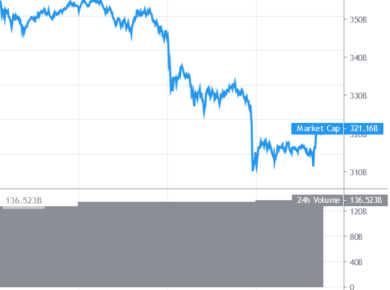Bitcoin cash (BCH), received after the Bitcoin (BTC) hard fork in 2017, constitutes taxable gross income, according to a memorandum released by the US Internal Revenue Service (IRS).
The IRS claims the document, dated March 22, cannot be cited as precedent, and it was drafted in response to a request for information related to an individual taxpayer who owned BTC and received BCH following the hard fork in August 2017, reported Law360.com.
The IRS was asked whether the receipt of BCH after the hard fork could be considered as taxable income in compliance with Section 61 of the Internal Revenue Code. As stated by the IRS, the provision defines gross income as income derived from whatever source, and including, but not limited to, “compensation for services, including fees, commissions, fringe benefits, and similar items.”
“The taxpayer had an accession to wealth under Section 61,” according to the report. “The date of receipt and fair market value to be included in income will be dependent on when the taxpayer obtained dominion and control over the bitcoin cash.”
In its earlier revenue ruling from 2019, the IRS stated that a hard fork itself did not result in gross income for taxpayers as long as they did not receive any units of the new crypto, but that an airdrop resulting in them obtaining new crypto generated such income. This ruling also used the notions of dominion and control over the newly-created cryptocurrency to determine whether there was taxable gross income.
Using two hypothetical situations, the 2021 memorandum says that a cryptocurrency holder who had dominion and control over the one unit of received BCH because he could sell, exchange or transfer it should report ordinary income in 2017 equal to the fair market value of it on Aug. 1, 2017.
This contrasts with the situation of a holder of 1 BTC who was a customer of a crypto exchange that provided hosted wallet services, the IRS said. The wallet provider had exclusive control over the private key, and chose not to support bitcoin cash. Due to this, the user could not buy, sell, send, receive or transfer BCH until January 1, 2018. When the wallet launched support of BCH that month, the user was enabled to sell, transfer or exchange the obtained 1 BCH. This would result in ordinary income in 2018 equal to the fair market value on that date, according to the memorandum.
A report by international consultancy Deloitte emphasizes that while “income can be realized from a chain-split, it need not be realized at the time of the chain-split, or, possibly, ever, for federal income tax purposes.”
Using the examples of the 2017 BCH hard fork, and the subsequent bitcoin gold (BTG) chain split that took place later that year, Deloitte said that “taxable income is realized if the owner of pre-split bitcoin exercises dominion and control over the corresponding chain-split coins,” the report said.
At 11:43 UTC, BCH trades at USD 675 and is down by almost 3% in a day, trimming its weekly losses to almost 20%. The price is up by 25% in a month and 190% in a year.
___
Learn more:
– Bitcoin Cash To Hit USD 100K, Says Roger Ver (Bullish on Ethereum Too)
– Collect Taxes More Effectively to Avoid ‘Debt Trap’ Chaos, Warns IMF
– ‘Guys, File Your Crypto Taxes, the IRS is Coming’
– Wait For IRS Before Spending Bitcoin
– Crypto and Tax in 2021: Be Ready to Pay More
– IRS Clarifies its Confusing ‘Airdrop’ Cryptocurrency Tax Policy











